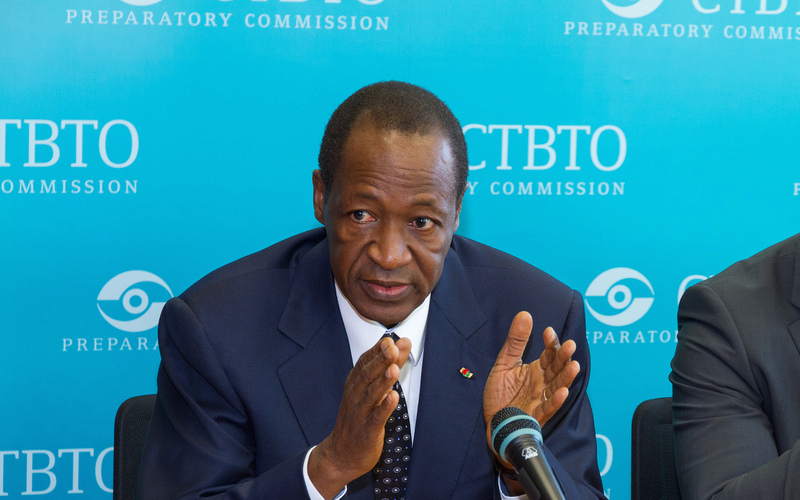
Burkina Faso-Taiwan Relations, Post-Blaise Compaore
November 31, 2014 will remain an unforgettable day in the political history of Burkina Faso. Blaise Compaore who came to power after a coup against the charismatic leader Thomas Sankara in 1987, was compelled to step down following a two-day public protest and demonstration. During his presidency, the former president succeeded in carving out a reputation as a mediator in West African conflicts and he displayed loyalty to Taiwan as one of the rare African heads of state to have diplomatic ties with Taiwan.
Yet, in the wake of Compaore’s departure, many questions have arisen as to whether the Burkina authorities will remain loyal to Taiwan or following the domino effect will they follow the path adopted by Gambia, which last year disengaged its diplomatic ties with Taiwan in favor of China. In other words, are Burkina-Taiwan diplomatic relations threatened in the post-Blaise era?
Today, Burkina Faso is among the very small number of African countries that maintain diplomatic relations with Taiwan. Burkina-Taiwan diplomatic relations have witnessed several ebbs and flows over the past 5 decades.
Originated in 1961, the relations between them lasted only one decade ending when the UN recognized China. General Sangoule Lamizana, president of Burkina at that time, shifted the weight in favor of China. However this bonhomie lasted only two decades and Blaise Compaore sought restoration of relations with decades old friend Taiwan in 1994.
However, this time the relations between the two, observed new momentum and rhythm as the two governments engaged in making the Taipei-Ouagadougou axis an exemplary one. According to Reuters: “In 2008 alone, Taiwan exported around $150 million worth of goods to Burkina Faso, while Burkina Faso exported about $8.45 million worth of goods to Taiwan, in which cotton held the biggest share at 99%.”
In addition to the dynamic economic cooperation between the countries, Taiwan provides capacity building to professionals from Burkina in the health and agriculture sectors. The integrity of the good relations between the two countries can be judged by the numerous high official visits between them. Since 1994, Blaise Compaore made 10 official visits to Taiwan.
The changing political patterns in Burkina’s recent history marked by the departure of Blaise Compaore and the formation of a new government of transition are observed and followed closely by both Taiwan and China. China’s maneuver to isolate Taiwan from the international community has been countered by Burkina Faso who time and again offered its diplomatic channels to Taiwan. As far as Taipei is concerned, they strongly believe that Ouagadougou will remain on their side despite the deposing of Blaise Compaore. A Taiwanese ministry official assured that: “The two countries have had solid relations over the past years. The relations will not be affected by the change of their government.”
Thus in pursuit of One-China principle of foreign policy, Beijing imposes a serious challenge to Taipei in maintaining the latter’s diplomatic relations with three countries on the African continent. Over the decade, China has showed its ability to take advantage of regime change to embrace newly elected leaders and later establish ties with countries as was the case with Senegal in 2005 and Malawi in 2008. Moreover, the Chinese diplomatic offensive is mainly based on no interference and Yuan diplomacy gives it an advantage compared to Taiwan which is relatively weak with a different approach mainly based on institutionalized foreign aid. The bargaining capacity of China reflects its economic strength and its permanent status on the Security Council.
In Burkina Faso, the transition is led by Michel Kafando, a veteran experienced diplomat and Lieutenant-Colonel Isaac Zida. These two will head the one-year transition period that will lead up to the presidential election in November 2015. Their short-term priority remains domestic but foreign policy will occupy a central place in coming months. As a seasoned diplomat, Michel Kafando is aware of the rapid evolution of global affairs and the necessity to bandwagon with emerging global players such as China.
In light of the absence of Blaise, Taiwan is concerned about the future of its relations with Burkina Faso. Even if China remains a serious challenger to Taiwan, the last word belongs to the new transitional leaders and those who will come after the one-year transition who will make a decision based on national interests. After all countries don’t have friends only their own interests.

